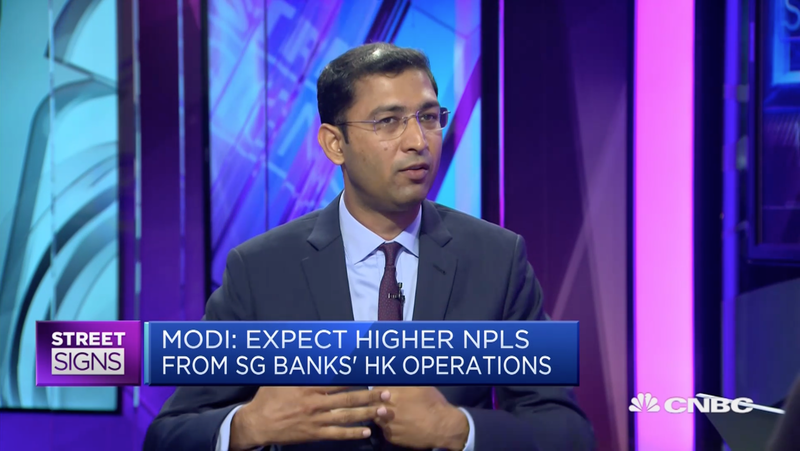JP Morgan expects high growth and profitability from Vietnamese banks
It is a rare combination where Vietnamese banks are growing fast and are quite profitable, said an expert at JP Morgan.
Vietnam’s banking sector is an attractive investment opportunity because it is generating a lot of capital and growing fast, according to a senior banker at JP Morgan.
| Harsh Modi, co-head of Asia ex-Japan for financials research at the investment bank at CNBC. |
It is a rare combination where Vietnamese banks are growing fast and are quite profitable, Harsh Modi, co-head of Asia ex-Japan for financials research at the investment bank, told CNBC.
As such, they are able to sustain high growth without needing too much capital for long periods of time.
“The return on equity that they’re generating is quite high. The return is higher than balance sheet growth,” Modi said during an interview with CNBC in November. What that implies is Vietnamese banks theoretically do not need to raise capital to fund current growth, but they do so, anyway, for purposes like having higher capital ratios and satisfying regulatory requirements, he explained.
As a result, without putting in a lot of money, investors are potentially able to see balance sheet growth for those banks sustaining for a period of time, with their stocks staying at reasonably high multiples. “That is the attraction of the sector,” Modi said.
In a November note that Modi co-authored, JP Morgan analysts said they expect Vietnamese banks under the firm’s coverage to deliver 15% to 21% return on equity over the next two years as they have “started making money on both sides of the balance sheet.” The investment bank is overweight on Vietcombank, Techcombank and Asia Commercial Bank.
Better macroeconomic factors are driving much of the optimism surrounding Vietnamese banks, according to Modi. Improving productivity in export-oriented sectors is drawing foreign direct investments, which improves the visibility of exports and the current account surplus for the next few years, and ensures reasonably adequate domestic liquidity in the country, he explained. Vietnam is said to be benefiting from the ongoing US-China trade war that has resulted in a shift in the global supply chain.
“Since we have that kind of visibility on exports and current account surplus and liquidity, that’s why we are comfortable forecasting significant amount of visibility on banking system growth and banking system profitability,” Modi said.












